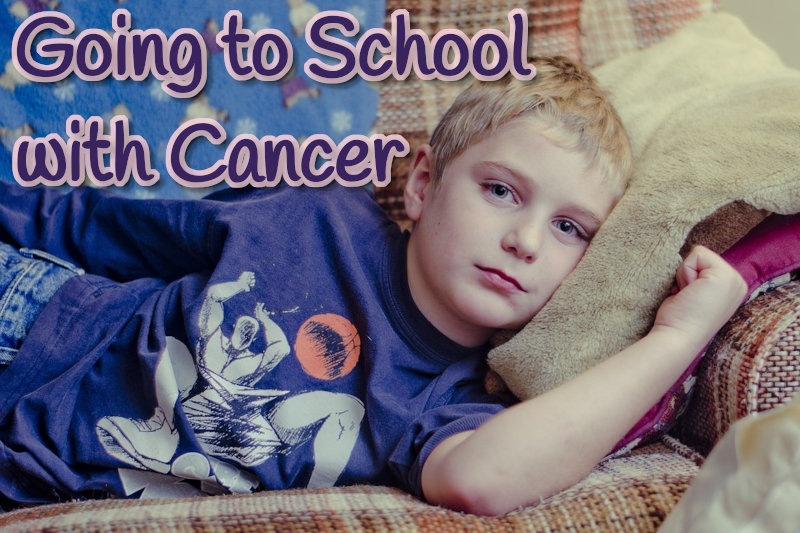Helping Children With Cancer Adjust to School

September 11th, 2024 | Cancer
The Importance of Learning While Sick
Going back to school brings fond memories of the new beginnings. The new routines, sports, and school shopping were the best childhood moments for most of us. However, there are families for whom it is one of the most difficult periods, especially when they have kids fighting cancer.
Nonetheless, there are many ways to help the little ones fighting cancer. Even the smallest steps – like making the children feel accepted, building confidence, and addressing their loneliness – can make a significant difference. Today, in our blog, we will cover the essential tips for helping children with cancer adjust to school.
Talk to School Authorities
Make sure that the school authorities are familiar with the child’s illness. Most of the time, they are frustrated because of the lack of attention they receive from their friends and their learning abilities.
Luckily, schools provide exceptional care for children who are facing cancer, helping them raise their confidence and self-esteem. Also, based on the parents’ or caregivers’ requirements, the school can make practical changes to accommodate their physical needs.
Informing Teachers
One of the best school strategies for students with cancer is contacting their teacher immediately. Teachers can help support the child dealing with cancer, so kindly inform them about their situation. This can help with the treatment and assist in creating effective strategies. Moreover, learning outside the school is a great method for helping children with cancer adjust to school. That way, a child’s education won’t be affected compared to the rest of the students.
Dealing with Infections
Children who are undergoing cancer treatment have a low immune system. Chemotherapy sessions suppress the body’s defense mechanism; kids are prone to chickenpox, measles, or other dangerous diseases. That is why helping children with cancer adjust to school also involves informing school authorities so they can contact the parents if they spot any unusual symptoms to prevent further damage.
Building Resilience
Resilience is vital for children facing cancer. Therefore, to help build resilience, implement the following:
- Praise their efforts
- Create a supportive environment
- Help children resolve conflict
- Help them think and act independently
Accessibility
The most common side effect of cancer treatment is fatigue. So when your child returns to school, they may easily get tired. That is why one of the best ways of helping children with cancer adjust to school is classes with easily accessible rooms. Also, they should have time between lessons to avoid crowds.
Sunlight Sensitivity
Children facing cancer are prone to sunburn. So, to avoid further risk, they should wear hats and have access to shaded areas. Moreover, on hot sunny days, schools may encourage indoor activities.
Support in Learning
In addition to the above considerations, you may request the school strategies for students with cancer, such as:
- Seating them in front
- Organizing a class buddy or a teacher for assistance
- Helping children to adapt, so the load can be managed effectively
- Allow extra time to finish the test or work
- Rest breaks to manage fatigue
However, the best way of helping children with cancer adjust to school is by informing the family about any complaints or unpleasantness. Also, if the child is actively receiving cancer treatment or has a CVAD device and develops a fever, it can be a serious condition and should not be ignored.
Hydration is one of the many effects of cancer. However, if this is the best cancer support for kids is Queasy hydration, which are naturally designed and drug-free. This product can help replace lost fluids, replenish electrolytes, and boost energy levels. Moreover, they can ease the stomach and water a dry mouth.
Recent Posts
- Treat the Amazing New Mom: Self-Gifting Ideas for Postpartum Recovery
- The Overwhelming Reality: Why Support is Crucial After Postpartum & Chemotherapy
- Understanding Morning Sickness: Beyond the Myth
- Battling Nausea During Chemo Treatment: Tips and Strategies for a More Comfortable Journey
- A Practical Guide to Traveling with a Baby in Winter
Categories
- All-Natural (4)
- Blog (47)
- Cancer (77)
- Diet (15)
- Holidays (27)
- Lifestyle (69)
- Motion Sickness (44)
- Nausea (106)
- New Mothers (41)
- Oncology Testimonials (3)
- Prebiotics (1)
- Preggie Products (11)
- Preggie Testimonial (24)
- Pregnancy (159)
- Queasy Products (7)
- Queasy Testimonial (17)